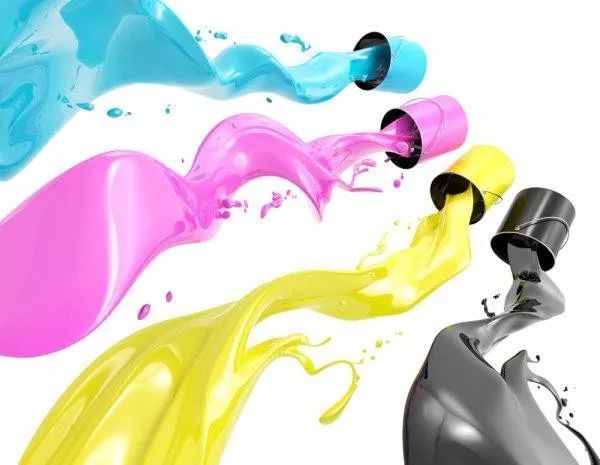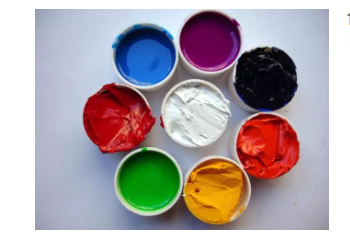Analysis of 26 Makeup R&D Problems There is always one thing you don’t know!
01
Question: How to make BB cream adhere to the skin and be easy to apply?
Answer: BB cream must adhere well to the skin. System viscosity: On the premise of ensuring product stability, appropriately reducing the viscosity of the product can improve the ductility of the product.
The influence of grease on ductility: The selected grease and silicone oil have the characteristics of small contact angle with skin and easy spreading;
Use grease with more linear chains; avoid using too much grease with thick, branched chains and large molecular weight.

The impact of emulsifiers on ductility: In addition to considering the combination with oil and fat, the ductility of the formula should also consider the freshness of the emulsifier. For example, P 135 (PEG-30 Dipolyhydroxystearate) has good ability to emulsify oils and fats, but its skin feels sticky; PEG-10 polydimethylsiloxane has good ability to emulsify silicone oil, and has Good refreshment.
Functional powder: Appropriately adding spherical powder, such as PMMA, nylon-12, etc., to the formula can reduce the friction resistance during application, thereby making the product have better ductility and spreading performance.
Others: Adding the following moisturizing ingredients such as sodium hyaluronate, polyols, etc. to the water phase can reduce the astringency of the product caused by being too refreshing, thereby improving the product’s ductility.
02
Question: Why does water-in-oil, especially water-in-silicone oil, not keep the skin feeling moisturized for a long time?
Used in water-in-silicone systems, such as cyclopentamethicone and octylmethicone, volatile silicone oils can help toners and pigments disperse evenly and have many benefits. Good spreadability and smearability can significantly improve the light, long-lasting, moist and smooth touch when used. However, as the skin’s water evaporates and the silicone oil evaporates, interference will be felt, especially if there is more fresh oil. obvious.
03
Q: What is a good solution when the low viscosity water-in-oil BB cream appears floating when poured into a transparent glass/acrylic bottle?
Low viscosity water-in-oil is indeed not easy to stabilize. The incompatibility of surface treatment agents used in the formula with oil and toner will also lead to the aggregation of toner. Try to use the same color powder surface treatment agent. For oils with good tolerability, adjust the amount of volatile oils used in the formula, such as low-viscosity and volatile polydimethylsiloxane, isododecane, etc.; at the same time, use an appropriate amount of oils that can form long-term moisturizing on the skin surface and Soft fat raw materials such as pentaerythritol tetrakis (ethylhexanoate) ester, shea butter, polyhydroxystearic acid, etc. can improve this phenomenon.
04
Q: What is the maximum amount of water-in-silicone emulsifier that can be added
Main emulsifier 2.5-3.5%, co-emulsifier 0.5-1.5%. Too much or too little will affect the stability, viscosity and freshness of the system. Similar to the combination of 1.KF6017 0.5%+KF6038 2.5%.2.KF6017 1.5%+KF6038 2%.3.EM90 2.5%+WE09 0.5%.

05
Q: If the foundation does not stick to the wall of the beaker, is it considered unstable?
It is considered unstable and requires further testing, including stability testing or centrifugation testing for evaluation.
06
Q: Will color hedging be considered in the development of isolation cream BB cream, with green isolation for red bloodshot skin and purple isolation for yellow skin? ?
As for the issue of color matching or so-called complementarity, it is necessary to consider the use of consumers. Color complementation is a consumption habit, and the popularity of products is also an influence of market consumption.
To meet the needs of most people, the structure and quantity of the product need to be considered. As R&D personnel, we must consider consumers’ feelings after use in order to comply with market habits.
07
Q: If nano-level titanium dioxide is not recommended now, how can micron-level titanium dioxide ensure its dispersion in conventional formulas? What points need to be adjusted in the formula design? Are there any recommended alternatives?
When using micron-grade titanium dioxide, use good grease to disperse it, such as: polyhydroxystearic acid/diethylhexyl carbonate/PTIS, etc. The formula design needs to completely disperse the toner. Generally, silicone The toners processed have good dispersion ability and market selectivity.��The downdraft type is better. 2. The density of the sponge core is also related to the viscosity of the material. It can be considered that the material has become thinner or the viscosity has dropped during filling.
There is a wide range of quality problems and solutions for cosmetics. We can discuss them privately. If it is foundation makeup, it is very detailed in the PPT.
When developing, pay attention to product stability and viscosity after 24 hours. Whether the viscosity range specified in the product specification is reached should be measured before filling.
23
Question: What are the advantages and disadvantages of different types of powders (titanium dioxide, talc, kaolin, bentonite, mica, diatomaceous earth, modified starch, silica powder) in foundation and recommended compatibility directions.
Titanium dioxide mainly plays the role of increasing whiteness and covering defects in the formula. Generally, it is oil-soluble and can be used in many formulas. Talcum powder mainly acts as a filler to increase slipperiness and moisture, and kaolin acts as oil absorbent. , brings moisture and removes facial oil, bentonite increases consistency, mica brings shine and smoothness, diatomaceous earth is used to absorb oil and can absorb facial sebum, but the formula is dry, modified starch, as the smoothness of the product It functions as a skin texture improver, and silicon powder brings a very silky feel.
24
Q: What are the recommended foundation color schemes for fair, light yellow, or dark yellow skin tones?
Foundation is roughly divided into: yellow, purple, and white.
The most suitable foundation color for Asian healthy yellow faces: yellow foundation
The most suitable color for dull skin and yellowish complexion: purple foundation
Color suitable for all skin types: white foundation
The functions and applicable locations of foundations of different colors
Yellow foundation: The whitening effect reduces the contrast deviation before and after makeup is applied. It is similar to the yellowish skin tone of Asians. After use, it can match the skin tone and make the skin look delicate and natural. It will not look completely different before and after makeup removal. human feeling.
Suitable location: whole face.
Purple foundation: Changes dull, dull skin and yellowish complexion. After use, the face will naturally exude a rosy luster, and it can also improve dark circles and puffy eyelids.
Suitable location: whole face and eyes
White foundation: for all skin tones. White has the effect of expanding and enlarging, so using white powder can perfectly improve the face shape that is not prominent or too thin.
Suitable locations: temples, under the eyes, T-shaped areas, etc., which can make the face look more plump and three-dimensional and highlight the facial features.
Note: Foundation of any color cannot be separated from your own skin color when choosing it, and it is best to try it on the facial skin.
25
Question: How can the BB and CC air cushions be guaranteed to last all day long? How can the formula structure and materials be selected to achieve this effect? Are they suitable for oily, combination, and dry skin?
To make your makeup last longer, add film-forming agents appropriately. Formula structure: Choose water-in-silicone (W/Si) or water-in-oil (W/O). Add functional oils to the product to make the product more effective during use. Maintain a level of moisture that will not be too drying for dry skin and not too oily for oily skin. It should be appropriately combined with moisturizing oil and volatile silicone oil.
26
Q: What is the structure of a quick-drying foundation with no obvious characteristic smell?
The product contains magnesium/zinc stearate or silicon-treated mica or talcum powder, which is combined with volatile silicone oil or isododecane. The product dries quickly when applied, forming this type of formula.